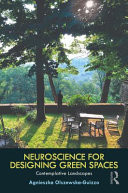Office Scenting (09-22-23)
Liu and colleagues evaluated the implications of scenting office spaces. They studied the “effects of ambient bergamot scent on the stress levels of office workers by exposing them to the scent while stressors persisted as the workers continued to work on the office tasks. . . . The change in heart rate variability revealed that bergamot scent increased stress among males but not for females. The reported pleasantness and comfort followed the same trend.
